Gastroesophageal reflux disease (GERD), or acid reflux, is a digestive disorder where stomach acid frequently flows back into the esophagus, leading to uncomfortable symptoms like heartburn, regurgitation, and a sour taste in the mouth.
Affecting millions globally, GERD can disrupt daily life, making it important to understand how to manage it effectively. Here, we explore 15 foods that can help manage GERD symptoms and promote long-term relief.
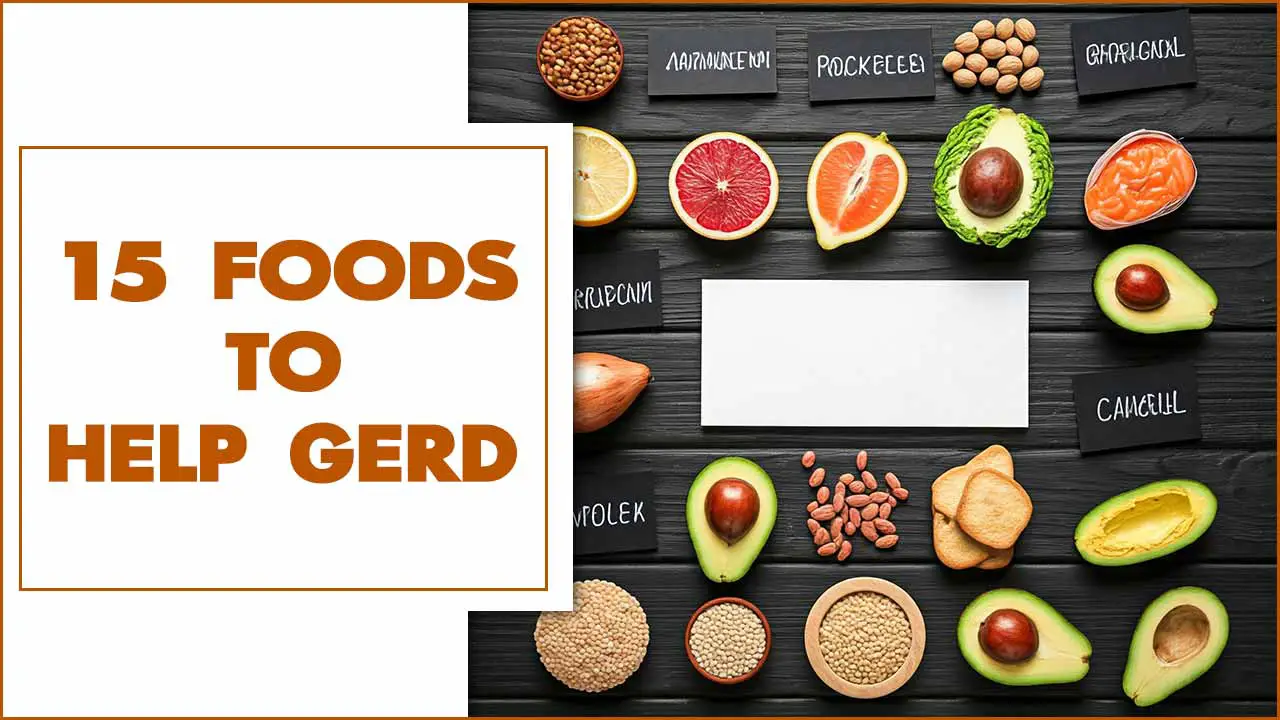
15 Foods To Help GERD: A Guide For Heartburn Relief
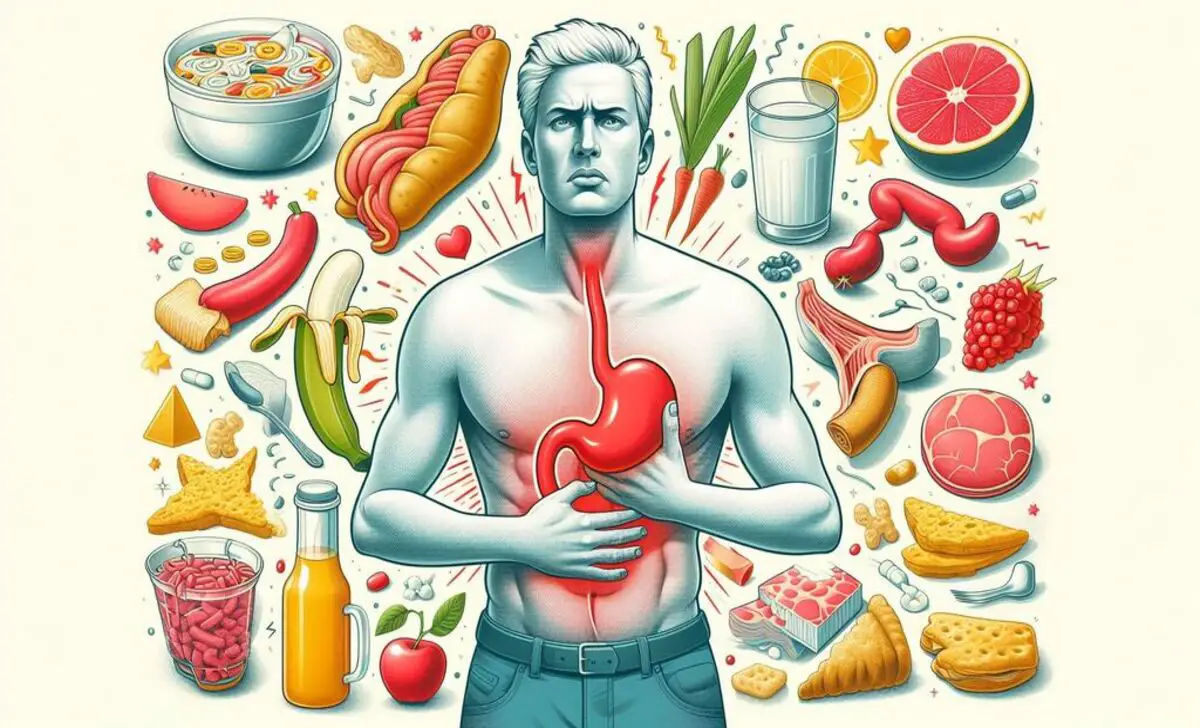
Gastroesophageal reflux disease (GERD), commonly known as acid reflux, affects millions of people worldwide. This condition results from stomach acid flowing back into the esophagus, causing symptoms like heartburn, a sour taste in the mouth, and even difficulty swallowing. Understanding GERD, its symptoms, and the best dietary choices can significantly alleviate discomfort and improve quality of life.
1. Oatmeal
A low-acid, high-fiber breakfast choice, oatmeal absorbs stomach acid and reduces reflux symptoms. It’s a great alternative to acidic breakfast foods like orange juice or coffee.
2. Ginger

Known for its anti-inflammatory properties, ginger can soothe the stomach lining, reduce acid production, and minimize acid reflux symptoms. Add it to meals, smoothies, or sip on warm ginger tea.
3. Bananas
Bananas are a mild, low-acid fruit, ideal for reducing acid reflux. They coat the esophageal lining, reducing irritation from gastric acid.
4. Leafy Greens
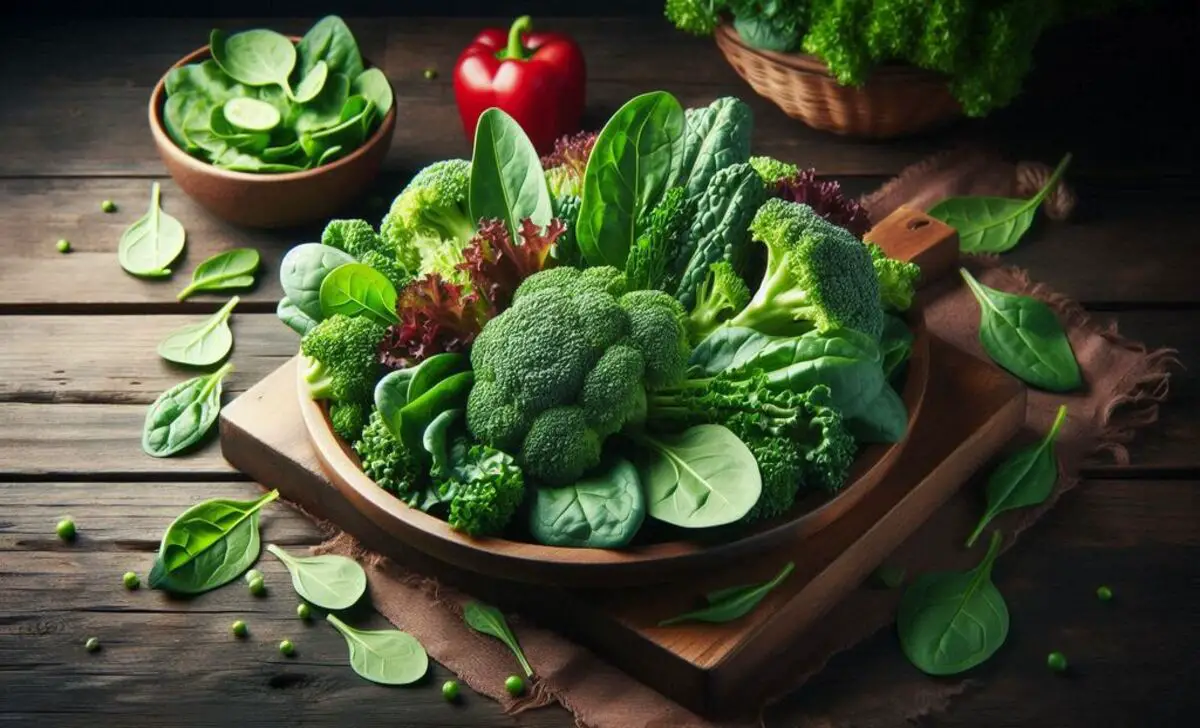
Vegetables like spinach, kale, and broccoli have low acid content and are rich in fiber. Leafy greens are beneficial for managing weight loss and supporting the stomach lining.
5. Melons (Non-Citrus Fruits)
Non-citrus fruits like melons (cantaloupe, honeydew) are less acidic, making them gentle on the stomach and reducing acid indigestion.
6. Lean Meats
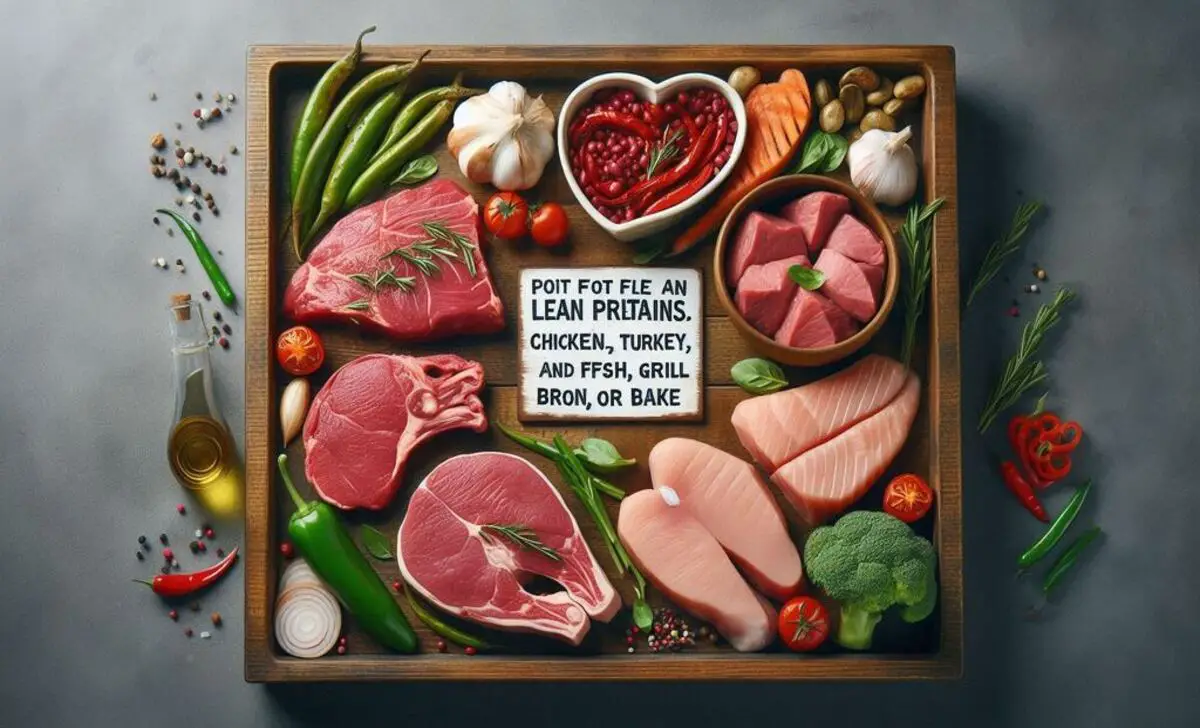
Opt for lean proteins like chicken, turkey, and fish over fatty red meats. Avoid frying; instead, grill, broil, or bake for heartburn relief.
7. Whole Grains
Whole grains like brown rice, couscous, and quinoa are high in fiber, absorbing excess stomach acid and reducing acid reflux.
8. Root Vegetables
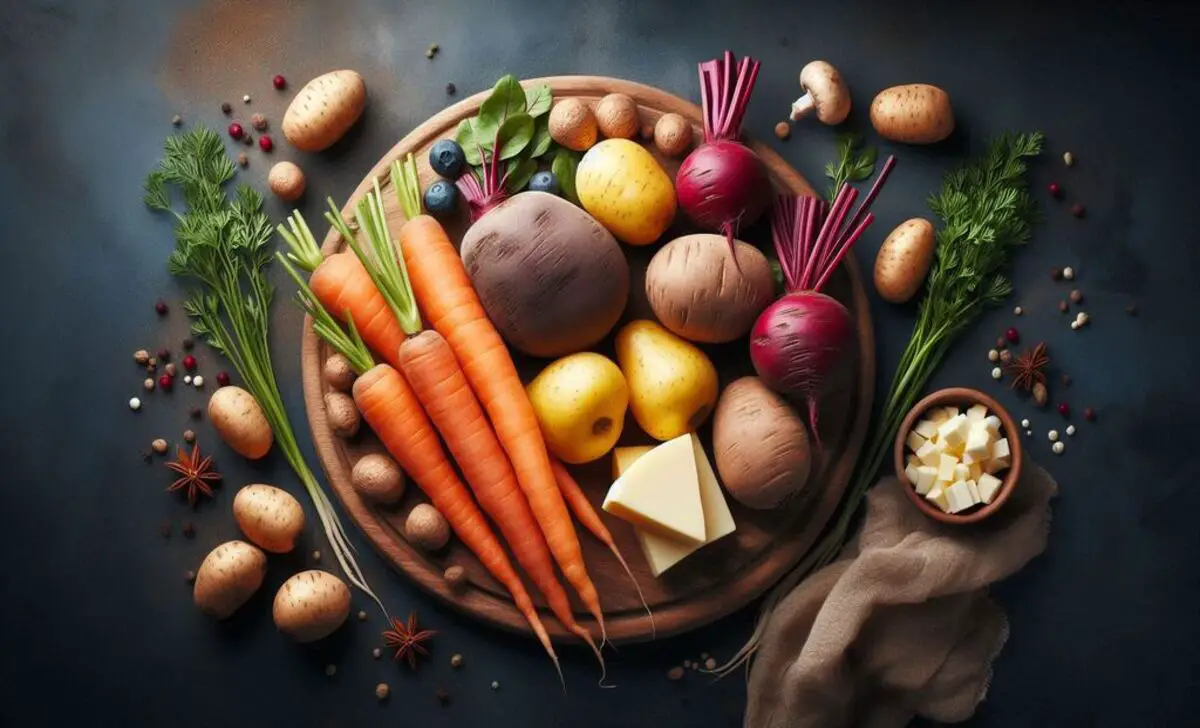
Potatoes, carrots, and beets are low in acid and high in fiber, making them ideal for a GERD diet. Avoid adding butter or cheese, which are high in saturated fat and can trigger reflux.
9. Low-Fat Yogurt
Yogurt is packed with probiotics, which aid digestion. Choose low-fat versions to avoid acid production from high-fat dairy products.
10. Almonds And Nut Butters
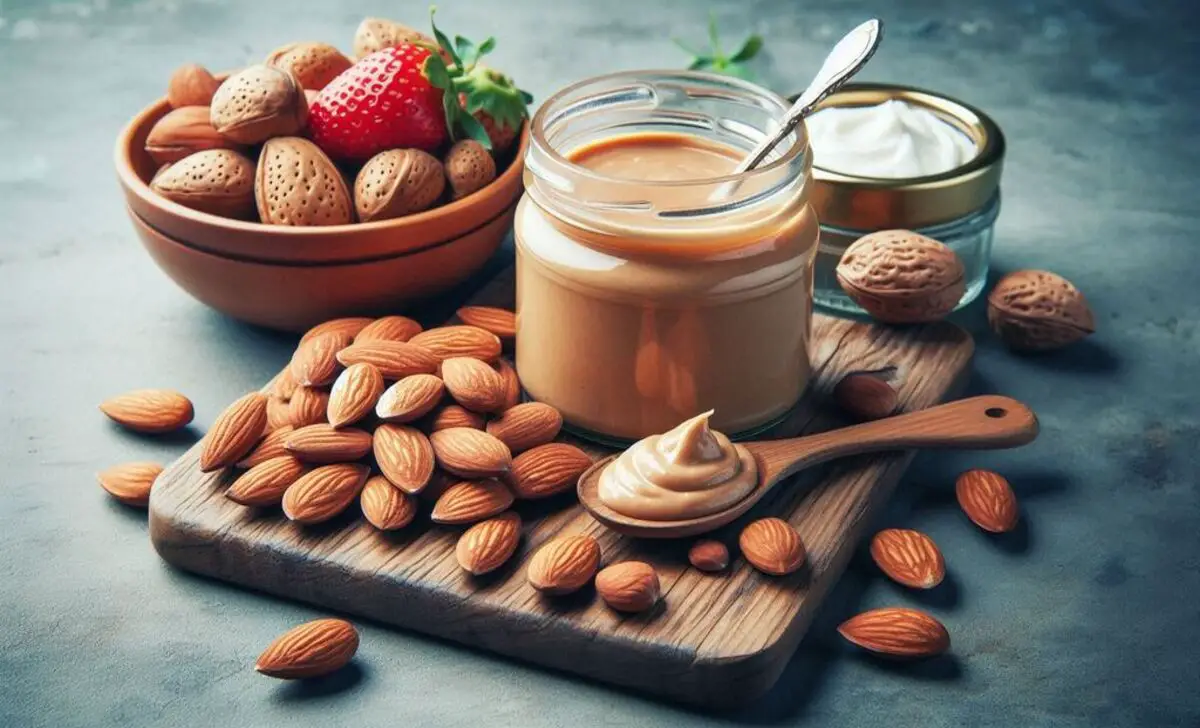
Nuts are high in healthy fats that can help reduce acid secretion and keep GERD symptoms at bay. Avoid nut butters high in sugar or additives.
11. Apples And Pears
These non-citrus fruits are GERD-friendly and rich in fiber, which helps move stomach content and reduces acid reflux symptoms.
12. Herbal Teas

Herbal teas such as chamomile and licorice root reduce stress and inflammation. Avoid peppermint tea, as it can relax the lower esophageal sphincter, allowing acid backflow.
13. Olive Oil (Healthy Fat)
Using olive oil as a cooking alternative to butter or lard reduces saturated fat intake. Olive oil is a healthy fat that reduces acid reflux triggers.
14. Chewing Gum

Sugar-free gum stimulates saliva production, neutralizing stomach acid and reducing acid reflux symptoms. Opt for non-mint flavors to avoid relaxing the esophageal sphincter.
15. Apple Cider Vinegar (Acv)
A small amount of ACV diluted in warm water may balance stomach acid. Some find it helpful in reducing acid indigestion, though it should be used in moderation.
Foods To Avoid For GERD Relief
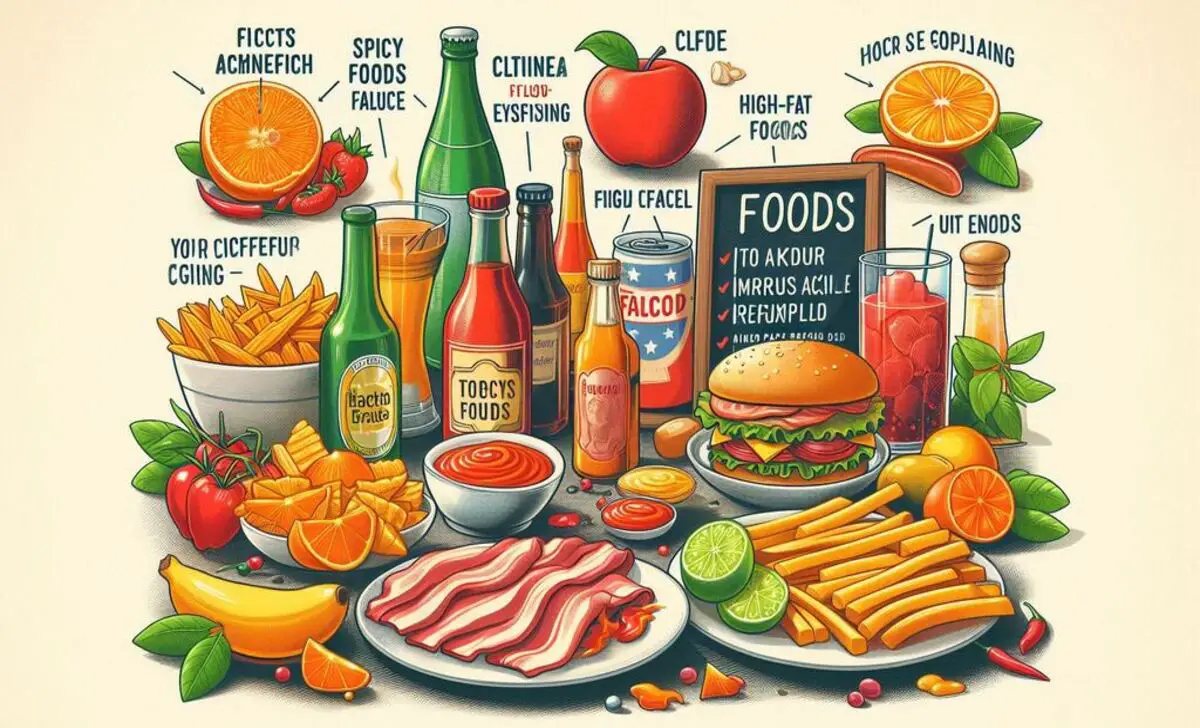
Certain foods exacerbate GERD symptoms due to their acidity or fat content. Reducing or avoiding these trigger foods can help:
- Spicy Foods and Tomato Sauce: Known to irritate the esophageal lining and increase acid reflux.
- Citrus Fruits: Oranges, lemons, and limes contain citric acid, which triggers GERD symptoms.
- High-Fat Foods: Fatty foods like bacon, butter, and fried foods slow digestion, increasing acid reflux episodes.
- Carbonated Beverages: Carbonated drinks like soda expand the stomach, pushing acid into the esophagus.
- Caffeine and Alcohol: Both can relax the lower esophageal sphincter, allowing acid to escape.
Tips For Managing GERD With Dietary And Lifestyle Changes
In addition to dietary changes, lifestyle adjustments can significantly improve GERD symptoms:
- Eat Smaller Meals: Large meals increase stomach content, putting pressure on the esophagus.
- Stay Upright After Eating: Wait at least two hours before lying down to prevent reflux episodes.
- Weight Management: Losing excess weight reduces pressure on the stomach, alleviating chronic acid reflux.
- Stay Hydrated with Warm Water: Warm water can soothe the esophagus and aid digestion.
- Avoid Late-Night Meals: Eating close to bedtime can cause acid to move up the esophagus while lying down.
Understanding GERD And Its Symptoms

GERD is a chronic form of acid reflux that can disrupt daily life. Its symptoms often include:
- Heartburn and chest discomfort
- Regurgitation of food or sour liquid
- A sensation of a lump in the throat
- Difficulty swallowing
Various factors, including certain foods, stress, and lifestyle choices, can exacerbate GERD symptoms. By making informed dietary adjustments, it’s possible to reduce reflux episodes and promote a healthier digestive system.
Conclusion
Following a GERD-friendly diet doesn’t mean giving up delicious food. By focusing on lean meats, non-citrus fruits, and whole grains, you can enjoy satisfying meals while keeping acid reflux symptoms under control. Pair these dietary adjustments with lifestyle changes, and GERD symptoms may become easier to manage. For personalized advice, consult a healthcare provider like those at Johns Hopkins Medicine, who can provide guidance on acid reflux and GERD treatment.
FAQs
1.Can I Eat Spicy Food If I Have GERD?
Spicy foods can aggravate GERD symptoms by irritating the esophagus. Avoid or limit spicy meals if you experience frequent acid reflux.
2.Does Apple Cider Vinegar Help With GERD?
Apple cider vinegar may help balance stomach acid when used in moderation. However, consult with a doctor before trying it, as it may not be suitable for everyone.
3.How Does Chewing Gum Reduce Acid Reflux Symptoms?
Chewing gum increases saliva production, which neutralizes stomach acid and reduces reflux. Choose non-mint flavors to avoid relaxing the esophageal sphincter.
4.Are High-Fat Foods Bad For GERD?
Yes, high-fat foods slow digestion and increase acid production, leading to more frequent reflux episodes. Choose low-fat options to minimize symptoms.
5.What Lifestyle Changes Can Help Manage GERD?
Eating smaller meals, avoiding trigger foods, staying upright after eating, and managing stress are effective lifestyle changes for managing GERD symptoms.